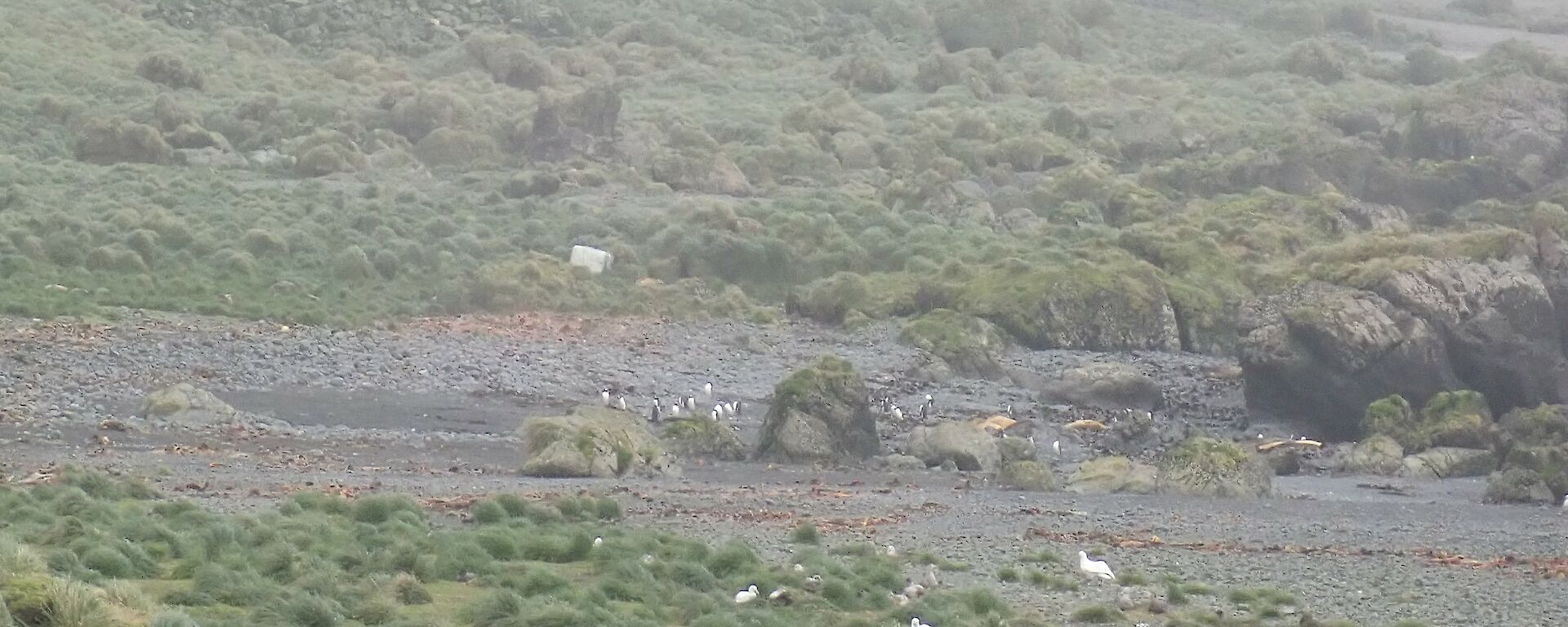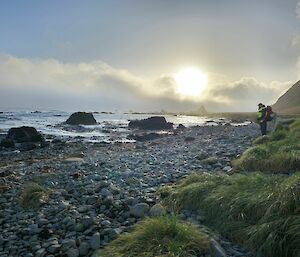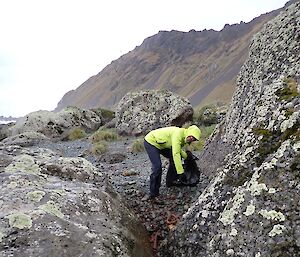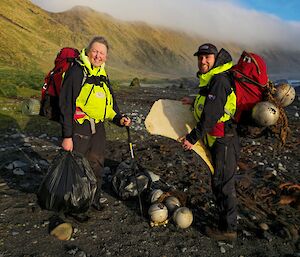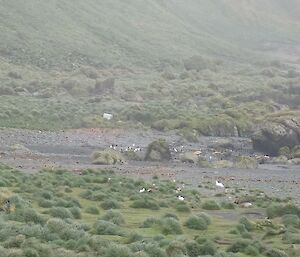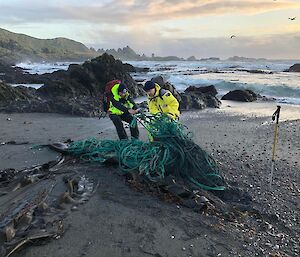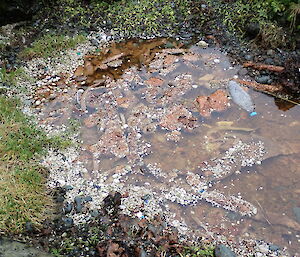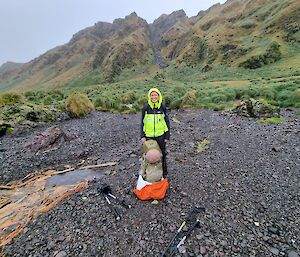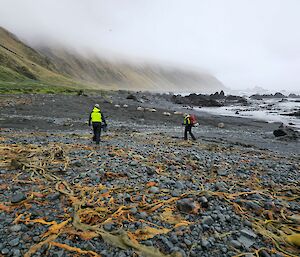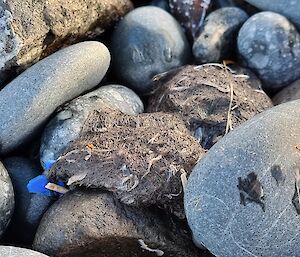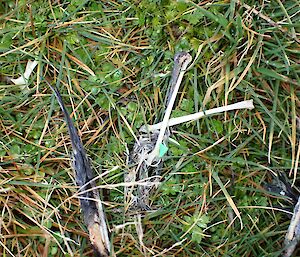Marine debris is a common problem in coastal regions across the globe and its potential impacts on the marine environment and the wildlife that live there are frequently highlighted, however the issue only seems to be increasing. Marine debris is generally considered to be any persistent solid material, that is manufactured or processed, which ends up in the marine environment or other large bodies of water.
Living on Macquarie Island, in one of the remotest parts of the world you would expect that we wouldn’t see much of this rubbish on our beaches, however this is not the case. The majority of material, including plastic bottles, fishing gear and assorted plastics, frequently wash up on the west coast of the island due to the prevailing weather conditions. Over the past twenty years, and probably longer, PWS staff and AAD expeditioners have made the most of the winter months, to access remoter beaches and bays along the west coast to collect and remove debris while many of the summer breading species are absent from the island. This year is no exception. Teams have been out to Sandell, Davis, Precarious and Bauer Bays as well as the length of the east coast to collect and move debris back to huts or caches around the island where they can hopefully be collected and returned to Australia at the end of the summer by helicopter. Removal of lengths of ropes and sharp objects directly reduces the chance of entanglements and injuries. Collection of plastics and styrofoam prevents items being washed back into the sea and potential consumption by surface foraging birds. Although litter keeps coming ashore it is great to see how much has been achieved over the past years with ongoing collections reducing the overall build-up of rubbish and the removal of items that locally threaten wildlife.
World Albatross Day was celebrated this week on the 19th of June and this year’s theme focussed on plastic pollution. The day aimed to increase awareness of the continuing conservation crisis faced by ACAP’s 31 species of albatrosses, petrels and shearwaters, a number of which return to breed on Macquarie Island. This month two boluses (regurgitations) from skua and Giant petrel were noted to have small items of plastic in them. In previous years entanglements affecting seabirds and seals have also been recorded so the impacts of marine debris are definitely observed locally.
- Helen Achurch (Wildlife Ranger TASPAWS) - 76th ANARE 2023

